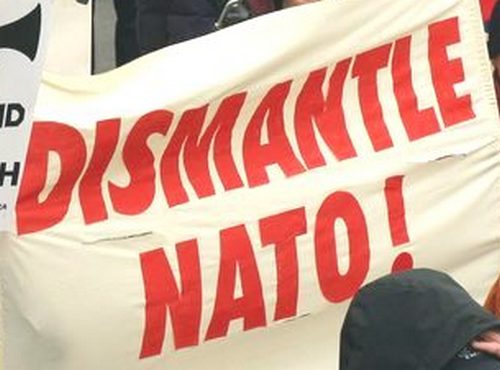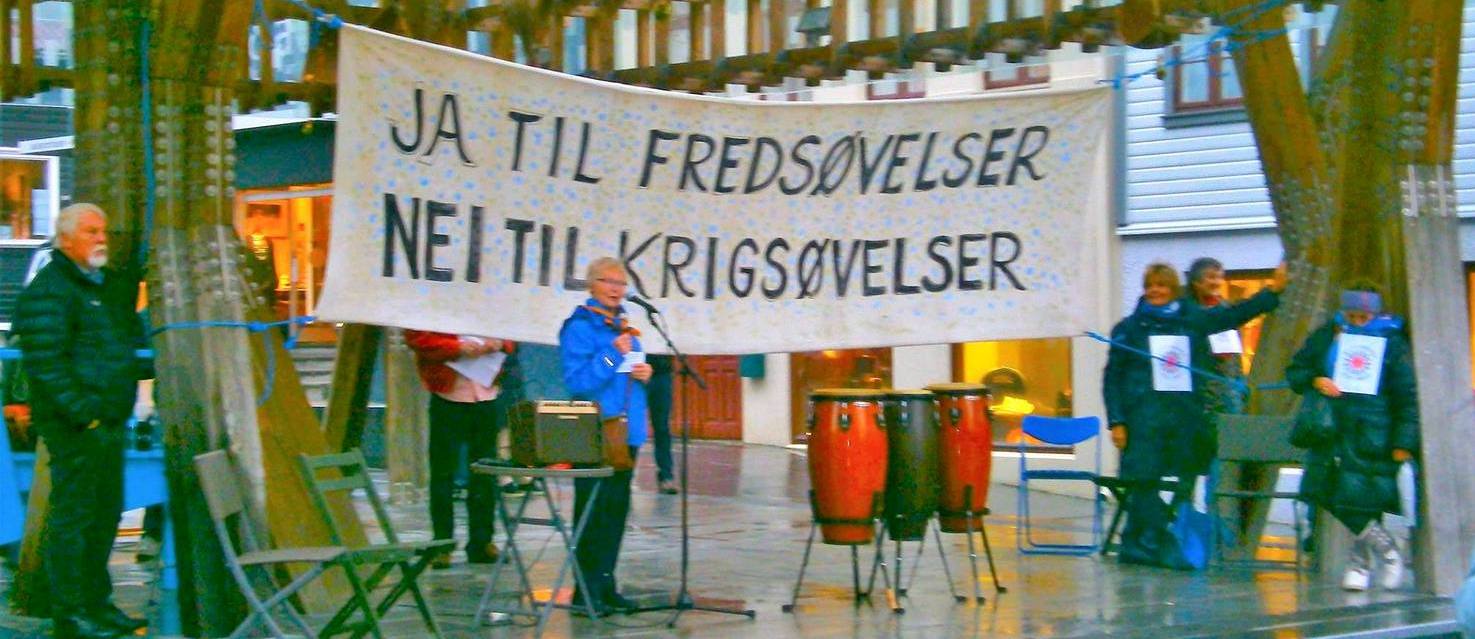NATO Countries Prepare for Massive
Trident Juncture War Games
Troops from NATO countries are preparing to take part in
the Trident Juncture 2018 war games in Norway and other parts of Scandinavia, which the aggressive alliance called its "largest since the Cold War." Fifty thousand troops from 31 countries (the 29 NATO member countries plus purportedly neutral Sweden and Finland) are taking part in this six-week exercise. Some 10,000 military vehicles will be involved, the first of which arrived in Norway in August. One hundred and fifty aircraft and 60 vessels will also take part.
 Trident Juncture is an expression of the U.S. striving for
world domination and the preoccupation of NATO with the
encirclement of Russia, which it attempts to justify by
portraying it as an aggressor nation. This exercise is a particular threat
to the peoples of Europe. Trident Juncture is said to show that NATO is adapting and responding to a "more demanding and
difficult security environment." The immediate aims of Trident Juncture include jointly training NATO forces and training them to rapidly deploy across Europe. These are the second Trident Juncture war games; the first were held in Spain and Portugal in 2015. Trident Juncture is an expression of the U.S. striving for
world domination and the preoccupation of NATO with the
encirclement of Russia, which it attempts to justify by
portraying it as an aggressor nation. This exercise is a particular threat
to the peoples of Europe. Trident Juncture is said to show that NATO is adapting and responding to a "more demanding and
difficult security environment." The immediate aims of Trident Juncture include jointly training NATO forces and training them to rapidly deploy across Europe. These are the second Trident Juncture war games; the first were held in Spain and Portugal in 2015.
The war games officially start on October 25, however advance
exercises were held in Iceland from October 15 to 17, while troop movements to Norway are also being used as training. For example, the British military convoy is currently making a 2,000-kilometre overland journey from the Hook of Holland harbour through
northern Europe to Norway. NATO states that its "move through the Netherlands, Germany, Denmark and Sweden will test how
efficiently soldiers and equipment can move between European countries. It will also test customs, border regulations and infrastructure's ability to cope with rapid and heavy troop movements." Similarly, the German army shipped Leopard tanks and other military vehicles onboard a civilian cargo ferry from the northern German town of Emden to Fredrikstad, Norway where they arrived on October 11. Meanwhile, U.S. forces are travelling to Norway by sea via the USS Harry S. Truman Carrier Strike Group.
"Military mobility is vital, especially to reinforce in a
crisis. That's exactly why we exercise it," said NATO
spokesperson Oana Lungescu. "Over the past few years, NATO has made real progress in improving our ability to deploy troops quickly across Europe. We are overcoming legal hurdles and cutting red tape, including by working closely with the European Union. Looking ahead, we aim to further reduce border-crossing times (clearances within five days by the end of 2019), identify alternative supply routes, and exercise even more to practice military mobility," she added.
NATO's concerns about mobility and logistics were elaborated
at the October 9 Trident Juncture press conference. U.S.
Admiral James Foggo noted, "At the core of the exercise is the NATO Response Force and within that, the 5,000 person-plus Spearhead force, otherwise known as the VJTF or the Very High Readiness Joint Taskforce." In response to a question from the press, he later explained, "Germany is part of the
German-Netherlands Corps, which is part and parcel of the
5,000-plus Spearhead Force that I told you about, the very high readiness joint task force, which shows that NATO can move quickly. Part of the discussion during the [NATO] Summit in July was the proposition to be able to do the 30/30/30 point [the 'Four Thirties' or 'European Readiness Initiative'], so that was to move 30 battalions, 30 aircraft squadrons or 30 ships in 30 days. The alliance aspires to be able to do that extremely well, and we will demonstrate that with the heavy logistics capability that will be demonstrated in this exercise. I think I have said it before: logistics is the sixth domain of warfare. And you can see that play out through Trident Juncture."
Another feature of the exercise is the imposition of NATO
forces on the local population and the militarization of civilian life. Norwegian Lieutenant-General Rune Jakobsen stated, "During the exercise, the regional forces will cooperate closely with civil emergency services, the police, the railway, port and transportation authorities, as well as with local and national businesses." Canadian Lieutenant-General Christian Juneau pointed out that there will be "over 10,000 vehicles on Norway's roads, that will present a traffic control challenge that will
stress-test the system."
Opposition to Trident Juncture

Rally against Trident Juncture, Sandnes,
Norway, October 13, 2018. Banner reads: "Yes to
Peace Exercises
No to War Exercises."(Stopp NATO)
Working people in Norway are greatly concerned about the
presence of these aggressive foreign troops in their country and are organizing to oppose it.
An event was held on October 13 in Sandnes in western Norway,
in which the organizers stated, "We say yes to peace exercises and no to war exercises and protest against NATO's build-up, which we believe are war preparations and a threat to people and climate."
The Facebook group Aksjon mot Nato-øvelsen Trident
Juncture (Action on NATO's Trident Juncture Exercises) has been set up to promote and coordinate anti-war actions. The organizers explain that their "goal is to inform about activities across the country and create national protests against Trident Juncture." They also point out the timing of Trident Juncture on the 100th anniversary of the end of World War I.
They note that the continuous upgrading of armaments, both
conventional and nuclear, "shows that we are in a new arms race. The exercise is part of militarization at a time of calm and an active peace movement. It is paradoxical that Norway awards the [Nobel] Peace Prize at the same time as a military exercise is being held that will increase the tension between the U.S./NATO and Russia and lead to increased militarization, including on Norwegian soil."
Mass actions to oppose Trident Juncture will take place in
Trondheim on October 20 and in Oslo on October 27.
(TML Weekly, October 20, 2018 - No. 36)
Return to Index on Ukraine
Website: www.cpcml.ca
Email: editor@cpcml.ca
|